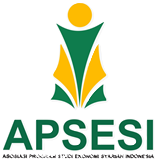Boycott of Israel Products in Islamic Economic Perspective: An Analysis of Muslim Consumers in Makassar City
DOI:
https://doi.org/10.53491/oikonomika.v6i1.1012Abstract
This study analyzes the perceptions and actions of Muslim consumers in Makassar City towards the boycott of Israeli products in the perspective of Islamic economics. The results show that the boycott is seen as a form of solidarity with Palestine and as a manifestation of the religious, moral, and social values espoused in Islam. The main motivations for participation in the boycott include religious obligation, socio-political solidarity, social media influence, and awareness of consumer rights. The boycott led to significant changes in consumption behavior, with increased preference for local products or alternatives not associated with Israel, as well as increased awareness of product origins and adherence to halal principles. Overall, this study shows that the economic decisions of Muslim consumers in Makassar are not only based on material factors, but also on ethical and religious considerations, with boycotts seen as a way to express protest against injustice and support socio-economic change in accordance with Islamic values.
Downloads
References
Airlangga PH, A. R., Saputri, W. A., & Nurhakim, P. R. (2024). Socio-religious behavior on consumption pattern during Israel and Palestine conflict in Muslim society. IAS Journal of Localities, 1(2), 138–152. https://doi.org/10.62033/iasjol.v1i2.22
Amarudin, A. A., Ananta, N. R., Khusna, N. N., Berliani, R. J., & Oktavianah, S. (2024). Analisis Literasi Halal Dan Preferensi Produk Yang Diboikot Pada. Populer: Jurnal Penelitian Mahasiswa, 3(1).
Anisa Jaelani, Y. N. (2024). Perilaku Konsumen Islam Terhadap Boikot Produk Israel Anisa. Karimah Tauhid, 3, 2024.
Ardhani, N. D. (2023). Analisis Dampak Boikot Pro Israel Terhadap Perekonomian di Indonesia. Jurnal Oportunitas Unirow Tuban, 04(02), 13–16.
Audra Laili, Muhammad Iqbal Fasa, A. K. J. (2023). Analisis Hukun Ekonomi Syari’ah Terhadap Pemboikotan Produk Israel. Jurnal Ekonomi Syariah, 410–421. https://doi.org/10.48175/ijarsct-13062
Firdaus Sultan Mamad, Johan Septian Putra, Reni Saaulia, S. A. (2019). Yasser Arafat dan Konflik Palestina-Israel (Tinjauan Sejarah). Khazanah: Jurnal Sejarah Dan Kebudayaan Islam, 1–13. https://doi.org/10.15548/khazanah.v0i0.190
Giyarsi, Lim Fahimah, M. armunida. (2022). Dinamika Industri Halal di India: Studi Kasus Pemboikotan Produk Halal Oleh Kelompok Sayap Kanan. Nusantara: Journal of Law Studies, 4(2), 78–94. https://doi.org/10.29303/ijpss.v4i2.115
Listyoningrum, A., & Albari, A. (2017). Analisis Minat Beli Konsumen Muslim Terhadap Produk Yang Tidak Diperpanjang Sertifikat Halalnya. Jurnal Ekonomi & Keuangan Islam, 2(1), 40–51. https://doi.org/10.20885/jeki.vol2.iss1.art4
Mohd Yunus, A., Abd Wahid, N., & Wan Hassan, W. S. (2018). Hukum Boikot Barangan Israel Berdasarkan kepada Fiqh Al-Jihad. Journal of Fatwa Management and Research, 4(1), 135–160. https://doi.org/10.33102/jfatwa.vol4no1.98
Mokobombang, M. A. R., Ayu, F., Niu, L., & Hasan, J. (2023). Perilaku Boikot Dalam Perspektif Islam Serta Implementasi di Era Kontemporer. Maqrizi: Journal of Economics and Islamic Economics, 3(1), 92–93. http://ejournal.iain-manado.ac.id/index.php/maqrizii
Purba, A., & Kamaluddin, I. (2019). Urgensi Jihad Masa Kini Dalam Perspektif Islam. Jurnal Ijtihad, Volume 13(2), 131–145.
Putra, B. A., & SIP, M. (2021). Buku Ajar Studi Konflik Dan Perdamaian Internasional. Deepublish
Qoriatul Falahyakti, A. F. (2024). Oksidentalisme Terhadap Boikot Produk Amerika Serikat: Jurnal Ilmiah Ekonomi Islam, 10(01), 656–662.
Rahmayosa, R. N., Madjakusumah, D. G., & Srisusilawati, P. (2022). Analisis Perilaku Konsumen Muslim dalam Penggunaan Produk Soju Non Alkohol. Bandung Conference Series: Sharia Economic Law, 2(2), 258–263. https://doi.org/10.29313/bcssel.v2i2.4290
Refendy, R. R. (2022). Analisis Hukum Islam Terhadap Pemboikotan Produk Asing Di Indonesia. Repositiory UIN Raden Intan Lampung, 23. http://repository.radenintan.ac.id/id/eprint/20271
Safitri, D. (2015). Seruan Boikot Starbucks: Kampanye Negatif Atau Kampanye Hitam? InterAct, 4(1), 11–20. http://www.radioelnury.com/2014/08/boikot-starbuck-merebak-di-seluruh-dunia.html
Satria, A., Tanjung, R. R., Sirait, R. I., & Sihotang, J. J. (2024). Konflik Palestina: Jihad Netizen Indonesia, Solidaritas Atau Pelanggaran Hukum. Jaksa: Jurnal Kajian Ilmu Hukum Dan Politik, 2(2), 229–238. https://doi.org/10.51903/jaksa.v1i3.14670
Sormin, S. K., Diba, F., & Malik, M. (2024). Perilaku Konsumsi Terhadap Boikot Produk Pro Israel. Karimah Tauhid, 3(3), 3114–3120. https://ojs.unida.ac.id/karimahtauhid/article/view/12443
Sugandi, R., & Anggraini, R. (2024). Gerakan Sosial: Aksi Bela Palestina Boikot Produk Israel di Kota Padang 2017-2023. Jurnal Ilmu Sosial, Bahasa Dan Pendidikan, 4(2), 7.
Zamzam, H. F., & Aravik, H. (2020). Etika Bisnis Islam Seni Berbisnis Keberkahan. Deepublish.
Downloads
Published
How to Cite
Issue
Section
License
Copyright (c) 2025 Fakhruddin Mansyur, Abdul Malik, Harun Alrasyid

This work is licensed under a Creative Commons Attribution-ShareAlike 4.0 International License.





